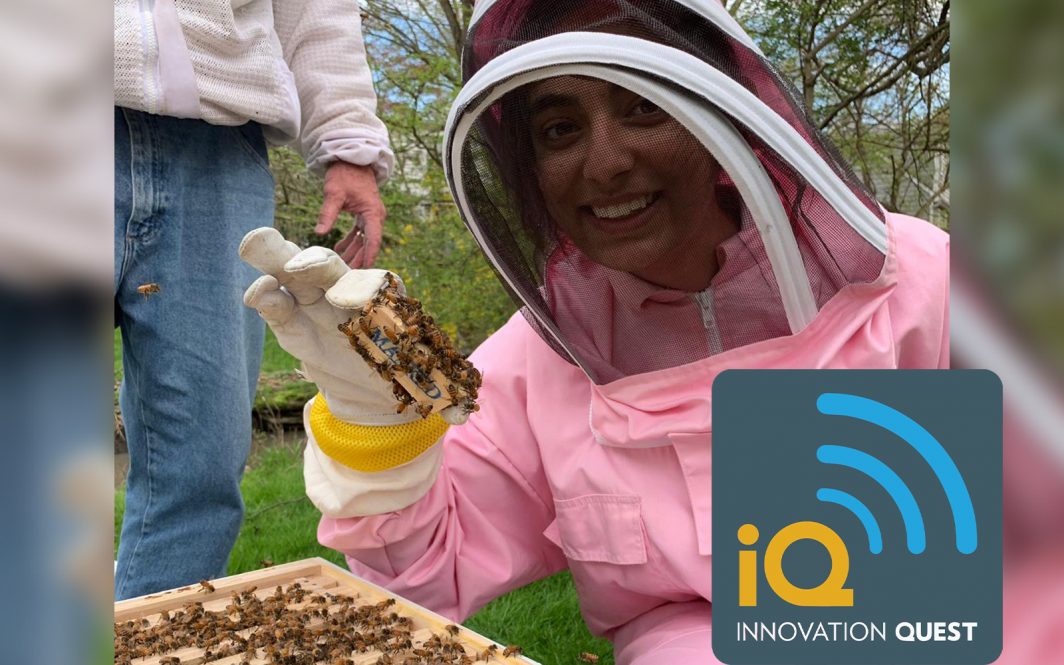The leaders of UConn’s highly successful Innovation Quest (iQ) competition said there are millions of varied ideas that could create prosperous startups.
But one irrevocable dynamic separates those who succeed from those who fail.
“The key to being successful is that you have to continually innovate,’’ says Rich Dino, director of the iQ program, who is also a serial entrepreneur and an associate professor emeritus. “Our entrepreneurs learn to ‘hear the footsteps behind them’ and accelerate the move forward by continued innovation.’’
Startup Competition Begins Feb. 9
Now in its 11th year, Innovation Quest—a student-focused startup competition–is better than ever, says Keith Fox ’80 (BUS), who created the program here. The competition is open to undergraduate and graduate students from any of UConn’s schools or colleges. As they advance through the program, students are mentored by experts in business planning, technology, patent law, marketing, finance, and more.
The top three finalists are awarded $15,000, $10,000 and $5,000 toward their startups. The best of the competitors are invited to iQ’s Summer InQbator program, which helps them further advance their applications and ideas.
This year’s events will be held virtually because of COVID. The kickoff workshop is at 6:30 p.m. Feb. 9, with additional workshops on Feb. 16, March 2, and March 9. The deadline to complete the formal application is March 23. For more information or to register for the kickoff workshop, please visit: innovationquest.uconn.edu.
“We are expecting an extraordinary turnout,’’ Dino says. “Students at UConn are more aware than ever of the entrepreneurial ecosystem that exists here, and many have chosen to come to UConn to participate in it. Our students are filled with incredible ideas.’’
Ideas Are Increasingly Sophisticated
iQ participants have created businesses that address everything from medical innovation to healthier fish food, unique athletic equipment to cancer treatments, and artificial limbs to healthy beverages.
Last year, Raina Jain ’24 (BUS), then a freshman, won first place with her QueenBee immune-support supplement. Alumni Tim Krupski ’15 (ENG) and Jeremy Bronen ’20 (ENG) took second place with Sedentary Medical Solutions, a toilet-lift assistance product for elderly or disabled people. And Jake Winter ’22 (ENG) and Massyl Mallem ’23 (ENG) took third place for Patent Plus, an artificial intelligence-driven software tool that helps inventors more easily determine if their invention is unique.
“Innovation Quest has been formulated specifically for students at UConn,’’ Dino says. “We welcome students with open arms either because they have an idea that they want to move forward or because they’d like the opportunity to work with other like-minded, high-achieving people.’’
“The ideas now are more sophisticated than they’ve ever been,’’ Dino says. “Our program doesn’t hand out a magic formula that automatically makes you become a successful entrepreneur. When students have a deep-rooted conviction that this is what they want, we let them know that we’ll go on the journey with them and accompany them the whole way.’’
The iQ program emphasizes three critical factors: creativity, innovation, and entrepreneurial thinking, says Fox, who has worked as a top executive at Apple and Cisco.
“Whether you start a company or not, these skills are invaluable in the workplace,’’ Fox says. “We teach opportunity. We’ll push you to innovate, to learn, and to compete.’’
Top-Notch Mentors Shape Students’ Experience
One of the highlights of the program is its vast pool of business mentors, Fox says. In the last decade, scores of business experts have coached UConn’s iQ students and the advice they have offered has been invaluable, Fox says.
“Our mentors have been a deep and valuable resource for students to fill the gap in skill sets and expertise,’’ Dino says. “No mentor is in it for their own financial benefit, other than the excitement they get from working with the best and brightest. They want to help move ideas forward and provide resources that they wish they had as students and young entrepreneurs. The program is built on the shoulders of our mentors, that’s where the horsepower is.’’
Program Benefits Both Our Students and Our State
Fox learned of the iQ program when he served on the President’s Advisory Board at Cal Poly and brought the program to UConn. In a typical year, hundreds of students participate. But beyond helping individual students, its success established entrepreneurship as a priority at UConn.
“It’s been very rewarding to watch this grow. It started with an idea and just took off. Last year was a huge milestone and we celebrated a decade of success,’’ Fox says. “We’ve had some 700 teams participate in iQ since its inception and that means thousands of students have raised their hands to say they want to explore entrepreneurship. We should celebrate that.’’
“Ultimately the biggest winner from this competition is the entire State of Connecticut,’’ Fox says. “I graduated from UConn in 1980 and was an entrepreneur, co-owning my own computer store. Connecticut was founded on entrepreneurship and innovation, and it is very much alive here today.’’



